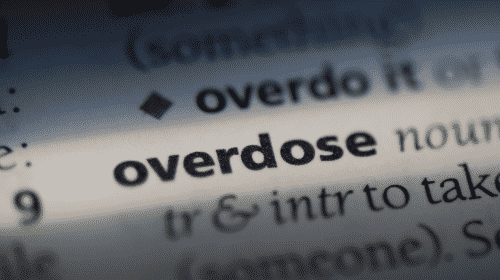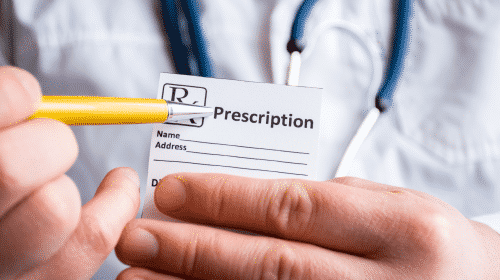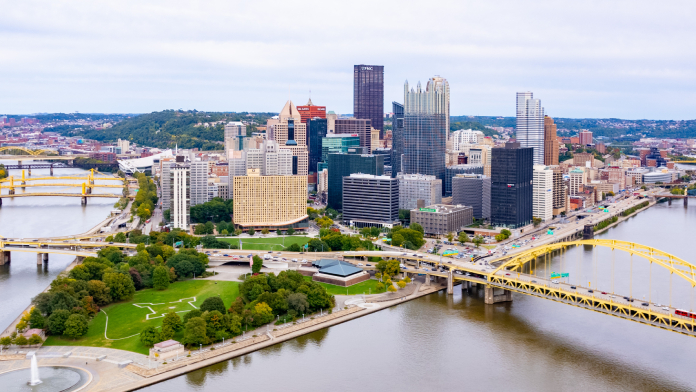Expert Insights
In Pittsburgh, Pennsylvania, a large group of state lawmakers and officials got together recently to discuss drug addiction, prevention efforts, and treatment in the state. Held via a virtual roundtable, the meeting was slated to give state representatives an opportunity to share personal stories and experiences, discuss what they’re doing right, what they’re doing wrong, and what they can do better in the future. And while we’re used to the left and right sides of the political aisle fighting like cats and dogs, lawmakers actually found some common ground during the virtual discussion. Many lawmakers revealed they had personally experienced a family member struggling with addiction, a few announced family members were in recovery, and several told heartbreaking stories of loss at the hands of drug addiction. It just goes to show that addiction truly does not discriminate, and everyone is impacted by substance abuse at this point in time.
~ Kerry Nenn
How Expensive is Drug Rehab in Pittsburgh?
The cost of alcohol or drug rehab in Pittsburgh depends on several variables, including:4
The type of treatment setting you choose (inpatient generally costs more than outpatient)
The type of facility you select (luxury facilities cost more than standard ones)
Whether you have insurance and what your policy covers
The type of care you need—specialty services like dual-diagnosis treatment and medication-assisted treatment (MAT) may increase your costs
Whether a facility gets funding from the government or other sources (non-profit and state-funded rehabs tend to be more affordable than private ones)
According to the Substance Abuse and Mental Health Services Administration (SAMHSA), there are more than 65 facilities within the greater Pittsburgh area. Of those facilities, 52 take private insurance, and 59 accept Medicaid. Some non-profit and state-funded treatment centers in the area provide services at little to no cost for eligible individuals.5
Are There Low-Cost and Free Drug Rehab Centers in Pittsburgh?
State-funded alcohol and drug rehabs in Pittsburgh provide addiction treatment and/or mental health services to low-income individuals who cannot afford the high cost of care. These facilities receive funding from local, state, and federal sources that allow them to provide services at little to no cost for people who demonstrate serious financial need.
If you’re interested in enrolling in a low-cost or free alcohol rehab in Pittsburgh, be aware that you need to prove your state and U.S. residency to qualify. You’ll likely also need to show proof of income and a lack of health insurance to be eligible for enrollment. To find one of these facilities near you, you can reach out to local social services agencies for more information.
Does Insurance Cover Rehab Center Costs?
Yes, health insurance typically covers alcohol and drug rehab and mental health services in Pittsburgh. According to the Affordable Care Act (ACA) and the Mental Health Parity and Addiction Equity Act (MHPAEA), addiction and mental health services are essential health benefits and must be covered by both private and public insurance.6
Private Insurance
If you have private health insurance, your plan will likely cover part or all of your addiction treatment costs. However, the extent of your coverage depends on your provider and plan. Understand, too, that not all Pittsburgh alcohol rehabs accept all types of private insurance. You’ll need to contact each facility you’re interested in to verify your insurance coverage before you enroll.
Popular insurance providers in the Pittsburgh area include Aetna, Advantra, Blue Cross Blue Shield, Coventry, Humana, Gateway, and UnitedHealthcare. If you have insurance through one of these providers, you should have some degree of coverage for addiction treatment at facilities that accept these plans.
Medicaid
Medicaid is public insurance jointly provided by the federal government and the government of each state. This type of insurance covers low-income adults, their children, elderly adults, people with disabilities, and pregnant women. Medicaid provides coverage for behavioral health services, which includes care for substance use and mental health disorders. If you have Medicaid, your extent of coverage for addiction and/or mental health services depends on the plan you have.7
Medicare
Medicare is a federal insurance program that provides coverage for people aged 65 and older and certain younger people with disabilities. This type of insurance provides coverage for what is considered “reasonable and necessary” addiction treatment services. Inpatient, certain outpatient programs, medications for opioid dependence, and mental health services are typically covered.8 If you have Medicare, be aware your coverage depends on the plan you have and whether a facility accepts it.
Does Your Insurance Plan Cover Substance Abuse Treatment?
Your private or public health insurance should provide some degree of coverage for drug or alcohol rehab in Pittsburgh. To find out what your coverage looks like, you’ll need to call each facility you’re considering to verify your insurance.
How Do You Pay for Addiction Treatment in Pittsburgh?
If you do not have health insurance or don’t qualify for care at free drug rehab centers in Pittsburgh, help is still available. Scholarships, grants, sliding-scale services, and financing agreements all help reduce the cost of addiction treatment or spread your costs out over time.
Choose a Program That Offers Payment Plans: If you have a stable source of income but cannot afford to pay for the full cost of your program upfront, you may be able to find facilities and detox centers in Pittsburgh that offer payment plans. These plans work like any other financing agreement, requiring an application, proof of income, and credit information. Some offer in-house financing, while others coordinate with third-party organizations that provide this type of funding.
Apply for a Scholarship: Scholarships provide funding that can cover some or all of your program costs. These scholarships are awarded on an as-needed basis, and if you’re eligible for one, you will not have to pay back the funding you receive. But to qualify for a scholarship, you’ll need to demonstrate significant financial need. In many cases, you’ll also need to prove you’ve exhausted all other funding options.
Find a Sliding-Scale Program: Many Pittsburgh drug rehabs offer sliding-scale services, which base your costs on your ability to pay. These facilities consider your gross monthly or annual income to determine your out-of-pocket costs. Even if you can only afford a small portion of your total costs, that’s all you’ll ultimately be required to pay.
Your history of substance use, mental health status, financial situation, and treatment needs will determine which setting—inpatient or outpatient—is right for you.
Medical Detox
If you have a history of opioid, alcohol, barbiturate, or benzodiazepine use, you may need to complete a stay in a medical detox facility before starting drug or alcohol rehab in Pittsburgh. Medical detoxification provides around-the-clock supervision and care from medical and addiction professionals who will help you withdraw from substances as safely and comfortably as possible.
While undergoing detox, you may receive medications to help minimize withdrawal symptoms and IV fluids to keep you properly hydrated. You may also receive psychological support in addition to medical care to ensure you’re physically and mentally prepared to begin formal treatment.
Inpatient
Inpatient alcohol or drug rehab in Pittsburgh may be right for you if you live with severe addiction and/or mental health concerns. This type of care takes place in a residential setting where you’ll be required to live for the length of your program. Depending on your needs and recovery progress, an inpatient program could last anywhere from 30 to 90 days.
While enrolled in a residential program, you’ll have 24/7 access to professionals who will support and guide you on your road to recovery. You’ll also live in a community with your peers who will be working through recovery alongside you. You’ll participate in daily sessions according to the facility’s structured schedule and will have a safe, stable environment where you can focus intensely on recovery.
Partial Hospitalization Programs (PHPs)
Partial hospitalization programs, also known as PHPs, provide intensive addiction treatment in an outpatient setting. These programs offer several hours of evidence-based addiction therapy per day and typically meet five to seven days a week.
Although you can live at home while enrolled in a PHP, you’ll need to have transportation to and from your sessions. This level of care may be a good option for you if you need intensive therapy but cannot put work, school, or family care on hold to enroll in an inpatient program.
Intensive Outpatient Programs (IOPs)
Intensive outpatient programs (IOPs) also provide intensive addiction therapy but not as frequently as PHPs. Most IOPs provide three to five days of care per week, with sessions lasting several hours per day. Often, these programs offer morning or evening sessions to better accommodate a variety of scheduling needs.
IOPs require participation in group and/or individual therapy and typically also provide alcohol and drug education and relapse prevention services. Many programs also offer skills development education, such as vocational training, to help with your transition from care back to daily life. If you need step-down care after inpatient or an intensive yet flexible first-line program, an IOP may be a good option for you.
Standard Outpatient
Standard outpatient addiction treatment typically involves five to 10 hours of addiction therapy and education spread over one to three weekly sessions. These programs often serve as a form of aftercare, either following inpatient or a higher-intensity outpatient program.
For many, low-intensity outpatient is a great way to receive ongoing relapse prevention support and build long-term community with peers.
Aftercare
When you complete your rehabilitation program, ongoing counseling, support, and other relapse prevention resources can help you stay strong in your recovery long term. If you think you need more time in care, you may want to consider a step-down program. Other aftercare options you may want to consider include:14
- 12-step recovery groups like Narcotics Anonymous (N.A.) or Alcoholics Anonymous (A.A.)
- Non-12-step recovery groups like SMART Recovery
- Peer support groups
- Ongoing alcohol and drug education classes
- Sober-living housing, which provides a stable, substance-free environment to help you successfully transition back into the community
How Does Pittsburgh Compare in Alcohol and Drug Use?
Known as the Steel City for its 300 steel-based businesses and the City of Bridges for a world-record 446 bridges, Pittsburgh is home to over 302,000 residents, making it the second-largest city in the state of Pennsylvania.1 However, the city has seen a steady uptick in drug overdose deaths over the past few years. There were 719 overdose deaths in 2021, 689 in 2020, 564 in 2019, and 492 in 2018.2 If you or someone you love is struggling with addiction, getting professional treatment could be a lifesaver. There are more than 65 accredited alcohol and drug rehab centers in Pittsburgh and the surrounding area.3
Pittsburgh is located in Allegheny County, Pennsylvania, which has one of the highest drug-related overdose deaths in the state.1 Other notable drug and alcohol use statistics for Pittsburgh and Allegheny County include:2,3

From 2019 to 2020, Allegheny County saw a 44% increase in opioid-related overdose deaths.

From 2015 to 2016, 35% of Allegheny County residents reported monthly binge drinking.

Between 2015 and 2016, 9% of Allegheny County residents reported abusing prescription painkillers.

Between 2015 and 2016, approximately 15% of all Allegheny County adults reported using cocaine at some point.
Alcohol and Drug Laws in Pittsburgh
Pennsylvania Good Samaritan Immunity Law: In Pittsburgh, the Good Samaritan Law provides limited legal immunity to persons who seek medical attention or administer naloxone to someone experiencing a drug-related overdose. This law aims to encourage more people to call 911 during a suspected overdose by providing immunity from arrest or prosecution to persons who possess small amounts of controlled substances. To receive protection under this law, a person must be acting in good faith.11
Pennsylvania Naloxone Standing Order: Pennsylvania’s Naloxone Standing Order, also known as Senate Bill 1164, allows friends or family members of persons who may be at risk for an overdose to obtain a naloxone prescription. This law also allows such persons to administer naloxone to someone who is overdosing and protects the administering individual from prosecution.12
Pennsylvania Family Leave and Medical Act: In Pennsylvania, employees who work for an employer with at least 50 staff members can take up to 12 weeks of leave for treatment for a serious health condition that prevents them from performing the duties of their job. This includes care for alcohol and/or drug addiction. Under this law, employers do not have to offer paid leave, but they must provide employees with their original or an equivalent position when they return from leave.13
Finding Specialized Drug Rehabs in Pittsburgh
If you identify with a specific affinity group, you may benefit from a program that’s sensitive to your unique needs and lived experiences. Many Pittsburgh drug rehabs offer services that cater to the needs of the following populations.
Veteran
Given the stress and traumas associated with active duty, veterans may be particularly vulnerable to developing addiction and co-occurring mental health disorders such as PTSD and depression. If you’re a retired member of the military and need treatment for substance abuse or a mental health disorder, a veteran-specific program may benefit you. These types of programs not only provide a community with support from peers but also an environment that’s sensitive to your unique lived experiences.
LGBTQ+
If you’re part of the LGBTQ+ community, you may benefit from an addiction program that provides a close community with other LGBTQ+ persons. These programs often specialize in treatment for co-occurring mental health disorders, such as depression and anxiety, that are common among the LGBTQ+ population. They also focus on addressing unique challenges and lived experiences you may have faced, such as trauma, harassment, internalized homophobia, family rejection, and gender dysphoria.
Men-Only
Many Pittsburgh detox centers and drug rehabs offer men-only treatment programs that are sensitive to the unique needs of men working through recovery. These programs provide an accepting environment where you can be open in expressing your needs and lived experiences. Engaging in a men-specific program can also provide you with invaluable support from other men working through recovery and long-term community with peers.
Women-Only
Women-only rehab programs address addiction from the female perspective. These programs not only provide a community with other women in recovery but also an accepting, understanding space where women can feel supported in expressing their needs. Often, women-specific programs provide special perinatal services for pregnant women and new mothers who can benefit from parenting education and resources. Some programs also offer supportive housing for women who’ve been victims of intimate partner violence or other traumas.
Teen
Several Pittsburgh drug rehabs offer teen-specific programs that are sensitive to the unique cognitive, physical, and emotional needs of adolescents with addiction. These programs often specialize in treating co-occurring mental health disorders that are common among teens, such as depression and anxiety. Adolescent programs often make family involvement an important part of treatment and provide activities and outings that appeal to younger individuals.
Should You Travel for Drug and Alcohol Rehab in Pittsburgh?
 If you enjoy the urban atmosphere of a large city, traveling to a drug or alcohol rehab in Pittsburgh may be right for you. Other reasons to consider traveling for addiction treatment include:9
If you enjoy the urban atmosphere of a large city, traveling to a drug or alcohol rehab in Pittsburgh may be right for you. Other reasons to consider traveling for addiction treatment include:9
- Your health insurance covers treatment at a local facility.
- You want to be in a new environment where your social circle or other triggers cannot interfere with your progress through recovery.
- You have family or friends in the area who can support you.
- You do not have access to the resources you need in your local area.
If you have the financial means to travel and would like to do so, having a fresh start in a new place may benefit your recovery.
If you’re thinking about traveling to Pittsburgh for alcohol and/or drug rehab, you’re sure to find a facility that can meet all of your treatment needs.
Resources
- Overdose Free PA. (n.d.). Death Data Overview.
- Allegheny County Department of Human Services. (2021). Accidental Overdose Deaths in Allegheny County, January 2016-June 2020.
- Allegheny County Health Department. (2017, April 28). Results from the 2015-2016 Allegheny County Health Survey (ACHS): Measuring the Health of Adult Residents.
- French, M. T., Popovici, I., & Tapsell, L. (2008). The Economic Costs Of Substance Abuse Treatment: Updated Estimates and Cost Bands for Program Assessment and Reimbursement. Journal of Substance Abuse Treatment, 35(4), 462–469. https://doi.org/10.1016/j.jsat.2007.12.008
- Substance Abuse and Mental Health Services Administration. (2022). Treatment Locator Map.
- Frank, R. G., Beronio, K., & Glied, S. A. (2014). Behavioral Health Parity and the Affordable Care Act. Journal of Social Work in Disability & Rehabilitation, 13(1-2), 31-43.
- Medicaid.gov. (n.d.). Behavioral Health Services.
- Department of Health and Human Services, Centers for Medicare & Medicaid Services. (2016). Medicare Coverage of Substance Abuse Services.
- Pullen, E., & Oser, C. (2014). Barriers To Substance Abuse Treatment in Rural and Urban Communities: Counselor Perspectives. Substance Use & Misuse, 49(7), 891–901.
- Visit Pittsburgh. (n.d.). Neighborhoods.
- Pennsylvania Department of Health. (2019, March). “Good Samaritan” Immunity.
- Pennsylvania Department of Health. (n.d.). Naloxone.
- Disability Rights Pennsylvania. (n.d.). Family Leave and Medical Act.
- McKay J. R. (2009). Continuing Care Research: What We Have Learned and Where We Are Going. Journal of Substance Abuse Treatment,



